M23 rebels, also known as the March 23 Movement have claimed control of Goma, the strategic city in eastern Congo. Goma is the hub of a region containing trillions of dollars in mineral wealth that remains largely untapped.
It marks a sharp escalation in one of Africa’s longest wars, threatening to worsen a dire humanitarian crisis dramatically.
On Tuesday, January 28, U.N. officials reported bodies lying in the streets, widespread looting and outages of electricity, water and internet access. More than 2 million of Goma’s civilian residents, including one million already displaced by the violence, were at risk of “catastrophic” humanitarian consequences, aid groups said.
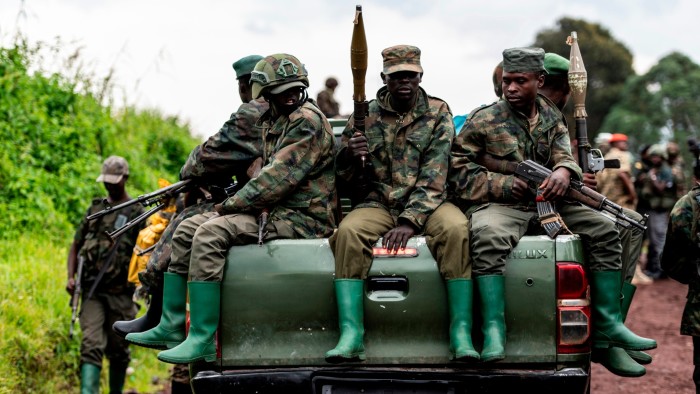

Analysts said the M23 fighters aimed to control the city of about 2 million people and perhaps other areas in the region, which is nearly 1,000 miles from the Congolese capital.
The rebels’ offensive has sent hundreds of thousands fleeing their homes, in addition to 1 million displaced who are already in Goma, and stretched hospitals to the limit, with hundreds of wounded coming in every day as civilians get caught in the crossfire.
The M23 group is one of about 100 armed factions vying for a foothold in eastern Congo, where a decades-long conflict has raged. The group, made up primarily of ethnic Tutsis who failed to integrate into the Congolese army, led a failed insurgency against the Congolese government in 2012. It was then dormant for a decade until its resurgence in 2022.
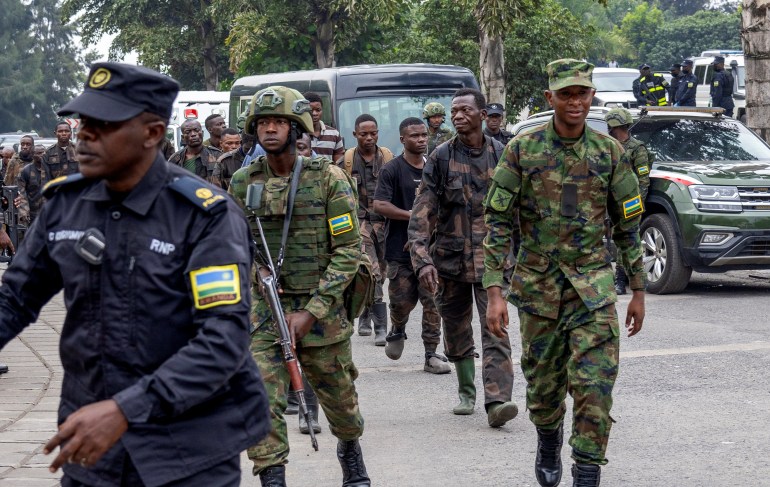
Between 1996 and 2003, the region was at the heart of a protracted conflict dubbed “Africa’s world war,” as armed groups fought over access to metals and rare earth minerals such as copper, cobalt, lithium and gold. Up to 6 million people died.
The conflict can be traced to the aftermath of the 1994 genocide in neighbouring Rwanda, where Hutu militias killed between 500,000 and 1 million ethnic Tutsi, as well as moderate Hutus and Twa, Indigenous people.
When Tutsi-led forces fought back, nearly 2 million Hutus crossed into Congo, fearing reprisals. Tensions between Hutus and Tutsis have repeatedly flared in Congo since then.
Rwandan authorities have accused the Hutus who fled of participating in the genocide and alleged that elements of the Congolese army protected them. They have argued that the militias formed by a small fraction of the Hutus are a threat to Rwanda’s Tutsi population.
M23 claims to defend Tutsi and Congolese of Rwandan origin from discrimination. Critics say it’s a pretext for Rwanda to obtain economic and political influence over eastern Congo.
According to the U.S. Department of Commerce last year, most of Congo’s mineral resources, estimated to be worth $24 trillion, remain untapped. The country is the world’s leading producer of cobalt, which is key to battery production.
Little of the region’s wealth has trickled down to Congolese citizens, with 60% of its 100 million residents living below the poverty line. Instead, fighting over natural resources has destabilised the country.
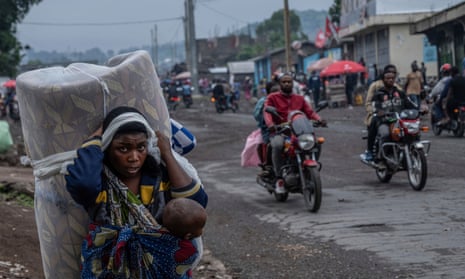
There are 4 million displaced people in eastern Congo, and the rebels’ escalated offensive sent additional hundreds of thousands fleeing their homes and displacement camps in recent weeks.
About 300,000 people sheltering in camps on Goma’s outskirts fled into the city as front lines moved over the weekend, only to find themselves trapped by the violence once again as rebels entered the city, according to the U.N.
The airport closed, roads were blocked, and aid groups said they could not provide lifesaving support to those in need. Medical facilities are at double their capacity. The main hospital in Goma treating the wounded, run by the International Committee of the Red Cross, is stretched beyond its limits, with tents set up in its courtyard to accommodate civilians injured by bullets and heavy artillery.
Some civilians, desperate to flee the fighting, crossed into Rwanda to seek safety. More than 1,000 Congolese have been registered since Monday, according to Rwandan authorities.
The takeover of Goma by the M23 rebels is a significant blow to the Congolese army and a serious escalation in the years-long conflict that has killed hundreds and displaced millions in the eastern DRC.
DRC’s Rural Development Minister Muhindo Nzangi said the Congolese army controlled 80 per cent of Goma, with Rwandan troops either on the city’s outskirts or back across the border.
According to AFP news, at least 17 people were killed in Goma on Monday, January 27, quoting hospital sources that doctors in the city were treating 367 people wounded in the clashes.
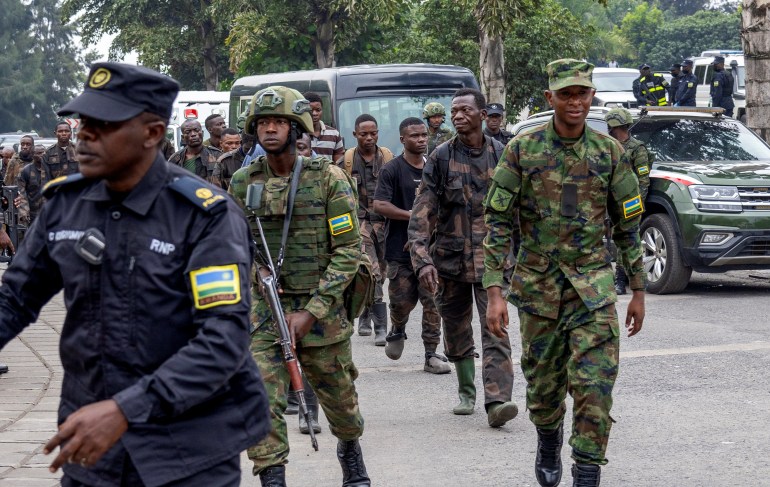
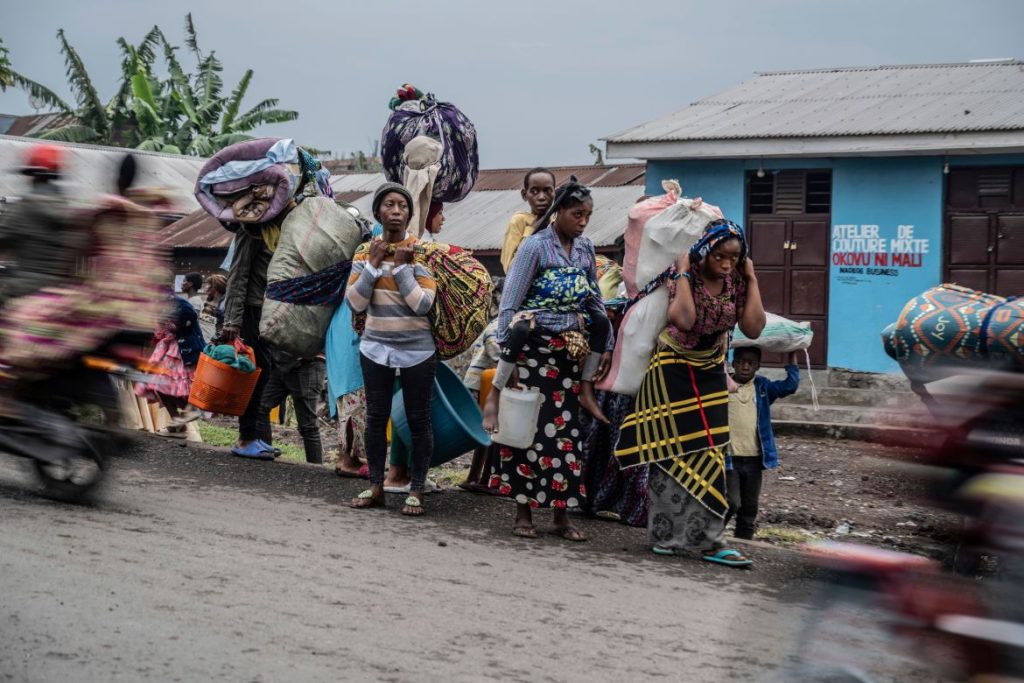
However, civil society groups and NGOs working in Goma put the death toll at 25, with 375 people injured.
“Our surgical teams are now working around the clock to cope with the massive influx of wounded,” Myriam Favier, head of the International Committee of the Red Cross in North Kivu province, told AFP.
Greg Ramm, country director for Save the Children in DRC, told an online briefing on Tuesday that while “we have reports that neighbourhoods are calm, a few minutes later, we hear reports of new shelling”.
However, the DRC government said it “continues to work to avoid the carnage and the loss of human life” in Goma, according to spokesperson Patrick Muyaya.
Meanwhile, there are growing international calls for peace talks to end the escalation of violence in the east of the DRC.
The fate of the economic and trading hub of Goma is still unclear. UN officials have said the situation is chaotic, with fighting continuing in parts of the city.
A Congolese government official has said the army still controls most of the regional capital, but M23 rebels who have attacked the city dispute that.
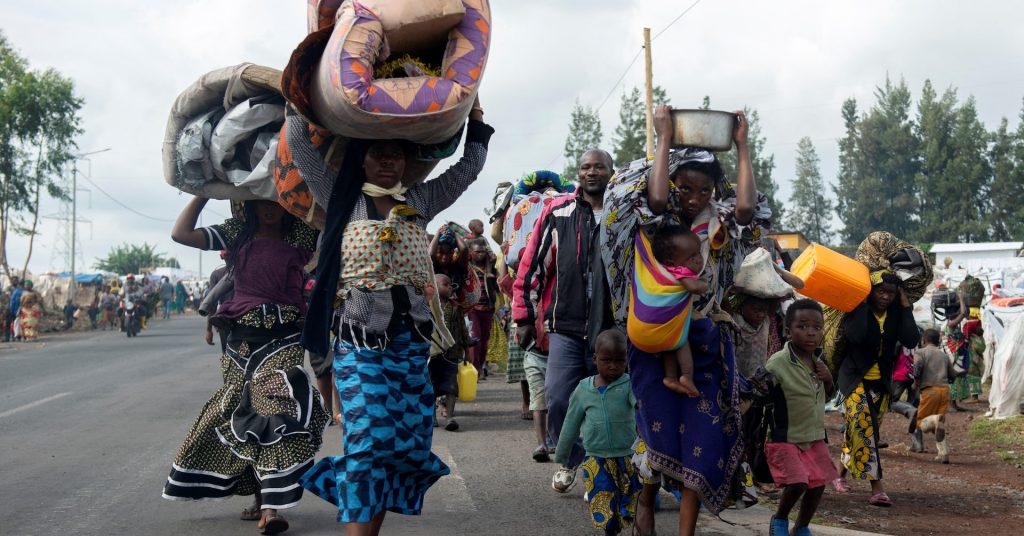
DR Congo President Félix Tshisekedi met with some state institutions’ leaders to evaluate the city’s situation.
“Our soldiers and the [pro-government militia] Wazalendo continue to hold certain positions in the city”, said Vital Kamerhe, the speaker of the National Assembly, after the meeting.
Goma has been cut off from electricity and water, and Mr Kamerhe said the government was working hard to restore them to the city. He revealed that the government was also seeking diplomatic and political solutions to the crisis.
Unfortunately, women and children are worst affected by the war. Children are forced to drop out of school, snatching most parts of their childhood and innocence away. At the same time, women and girls are exposed to sexual and extreme human rights abuses.
Culled from AFP News

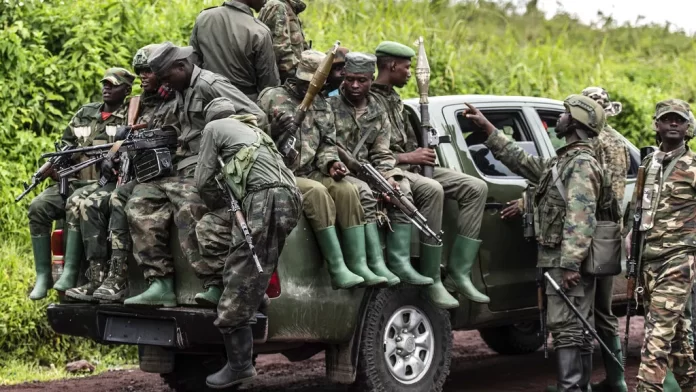













It’s hard to find knowledgeable people on this topic, but you sound like you know what you’re talking about! Thanks
You could definitely see your enthusiasm within the work you write. The arena hopes for even more passionate writers like you who aren’t afraid to mention how they believe. All the time follow your heart.
Este site é realmente fantástico. Sempre que consigo acessar eu encontro coisas boas Você também pode acessar o nosso site e saber mais detalhes! informaçõesexclusivas. Venha descobrir mais agora!
me encantei com este site. Para saber mais detalhes acesse nosso site e descubra mais. Todas as informações contidas são conteúdos relevantes e únicos. Tudo que você precisa saber está ta lá.